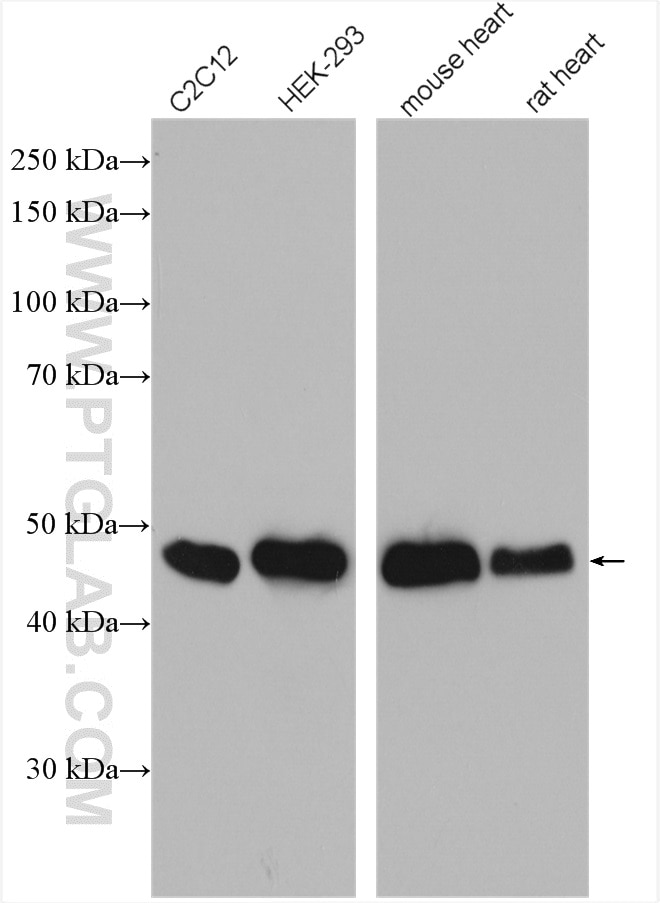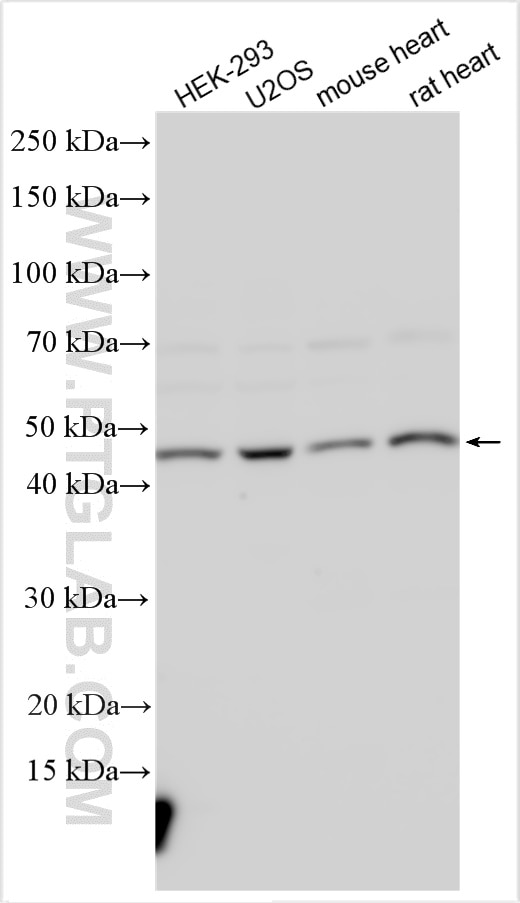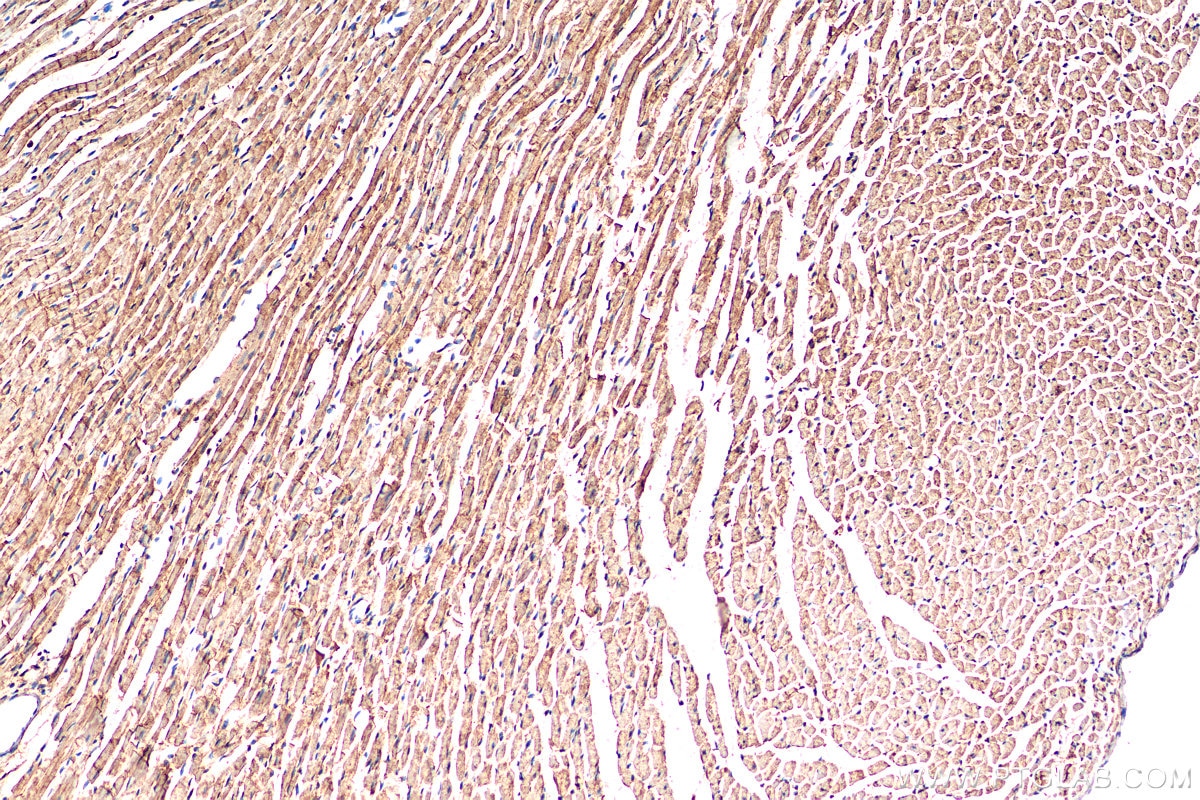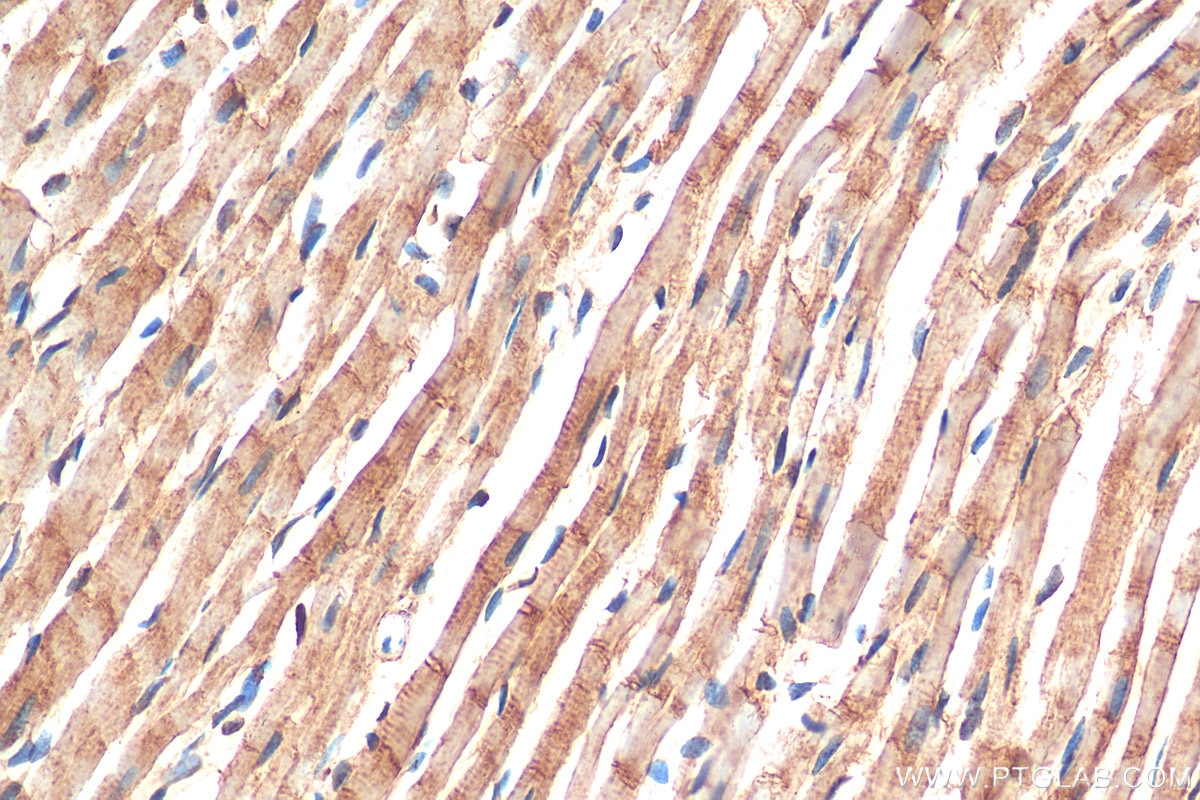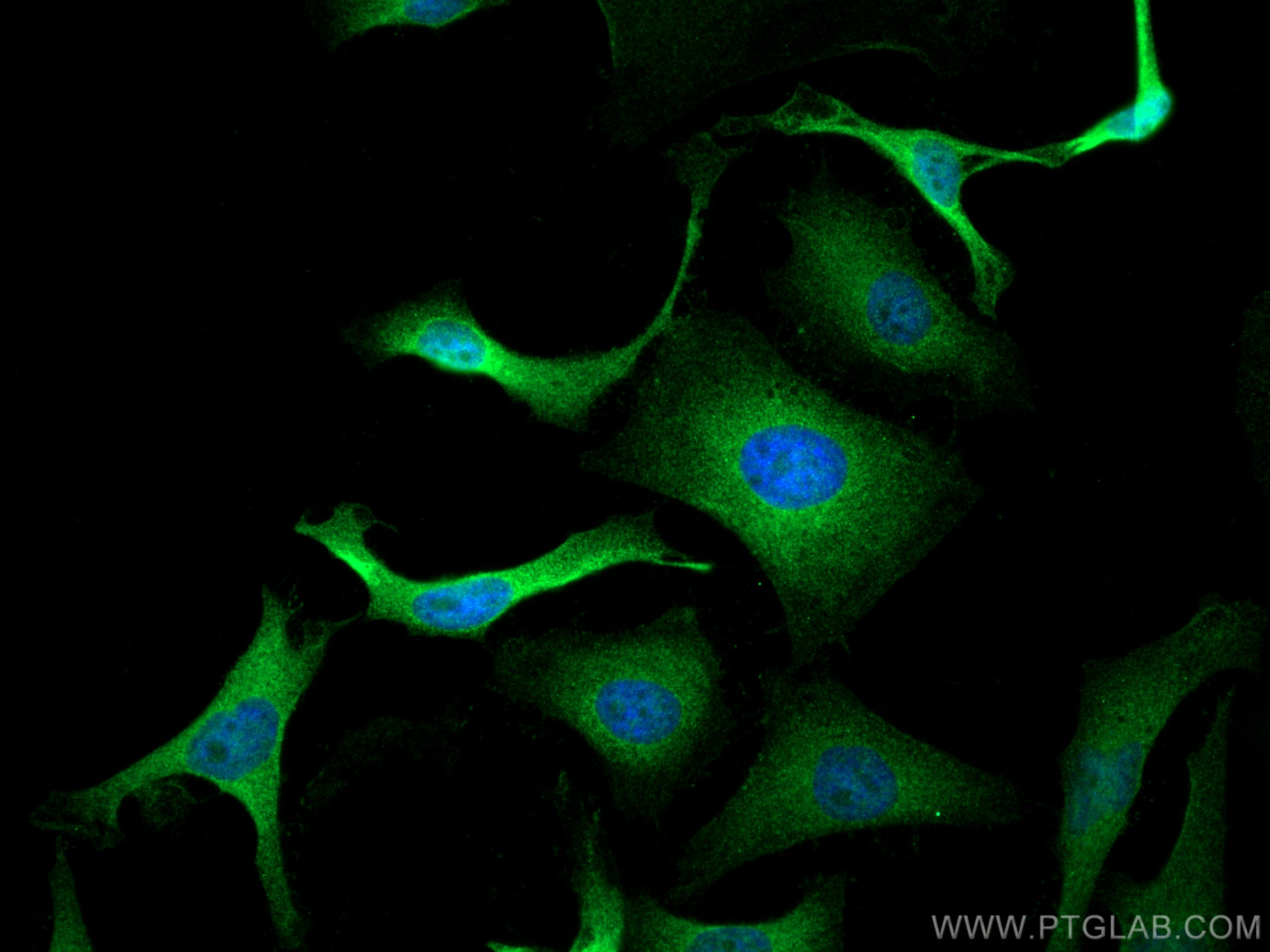Tested Applications
| Positive WB detected in | C2C12 cell, HEK-293 cells, C2C12 cells, U2OS cells, mouse heart tissue, rat heart tissue |
| Positive IHC detected in | rat heart tissue Note: suggested antigen retrieval with TE buffer pH 9.0; (*) Alternatively, antigen retrieval may be performed with citrate buffer pH 6.0 |
| Positive IF/ICC detected in | HeLa cells |
Recommended dilution
| Application | Dilution |
|---|---|
| Western Blot (WB) | WB : 1:1000-1:4000 |
| Immunohistochemistry (IHC) | IHC : 1:50-1:500 |
| Immunofluorescence (IF)/ICC | IF/ICC : 1:50-1:500 |
| It is recommended that this reagent should be titrated in each testing system to obtain optimal results. | |
| Sample-dependent, Check data in validation data gallery. | |
Published Applications
| KD/KO | See 8 publications below |
| WB | See 16 publications below |
| IHC | See 12 publications below |
| IF | See 6 publications below |
Product Information
21290-1-AP targets SMYD2 in WB, IHC, IF/ICC, ELISA applications and shows reactivity with human, mouse, rat samples.
| Tested Reactivity | human, mouse, rat |
| Cited Reactivity | human, mouse, rat |
| Host / Isotype | Rabbit / IgG |
| Class | Polyclonal |
| Type | Antibody |
| Immunogen |
CatNo: Ag15823 Product name: Recombinant human SMYD2 protein Source: e coli.-derived, PGEX-4T Tag: GST Domain: 1-272 aa of BC098305 Sequence: MRAEGLGGLERFCSPGKGRGLRALQPFQVGDLLFSCPAYAYVLTVNERGNHCEYCFTRKEGLSKCGRCKQAFYCNVECQKEDWPMHKLECSPMVVFGENWNPSETVRLTARILAKQKIHPERTPSEKLLAVKEFESHLDKLDNEKKDLIQSDIAALHHFYSKHLGFPDNDSLVVLFAQVNCNGFTIEDEELSHLGSAIFPDVALMNHSCCPNVIVTYKGTLAEVRAVQEIKPGEEVFTSYIDLLYPTEDRNDRLRDSYFFTCECQECTTKDK Predict reactive species |
| Full Name | SET and MYND domain containing 2 |
| Calculated Molecular Weight | 433 aa, 50 kDa |
| Observed Molecular Weight | 50 kDa |
| GenBank Accession Number | BC098305 |
| Gene Symbol | SMYD2 |
| Gene ID (NCBI) | 56950 |
| RRID | AB_10733881 |
| Conjugate | Unconjugated |
| Form | Liquid |
| Purification Method | Antigen affinity purification |
| UNIPROT ID | Q9NRG4 |
| Storage Buffer | PBS with 0.02% sodium azide and 50% glycerol, pH 7.3. |
| Storage Conditions | Store at -20°C. Stable for one year after shipment. Aliquoting is unnecessary for -20oC storage. 20ul sizes contain 0.1% BSA. |
Background Information
SMYD2, also known as SET and MYND domain containing 2, encodes an enzyme called N-lysine methyltransferase SMYD2, which plays a crucial role in cellular processes, including histone methylation, non-histone protein methylation, cell proliferation and differentiation, DNA repair (PMID: 18065756, PMID: 36191822). Aberrant SMYD2 expression has been linked to various cancers, including colon cancer, lung cancer, and cervical cancer. Smyd2 is strongly expressed in muscle cells with highest expression in the neonatal heart (PMID: 25125178).
Protocols
| Product Specific Protocols | |
|---|---|
| IF protocol for SMYD2 antibody 21290-1-AP | Download protocol |
| IHC protocol for SMYD2 antibody 21290-1-AP | Download protocol |
| WB protocol for SMYD2 antibody 21290-1-AP | Download protocol |
| Standard Protocols | |
|---|---|
| Click here to view our Standard Protocols |
Publications
| Species | Application | Title |
|---|---|---|
Cell Death Dis SMYD2 targets RIPK1 and restricts TNF-induced apoptosis and necroptosis to support colon tumor growth. | ||
Theranostics Inhibition of SMYD2 suppresses tumor progression by down-regulating microRNA-125b and attenuates multi-drug resistance in renal cell carcinoma.
| ||
Oncogene Lysine methyltransferase SMYD2 enhances androgen receptor signaling to modulate CRPC cell resistance to enzalutamide | ||
Cells Unveiling Smyd-2's Role in Cytoplasmic Nrf-2 Sequestration and Ferroptosis Induction in Hippocampal Neurons After Cerebral Ischemia/Reperfusion | ||
Stem Cells SMYD2 Drives Mesendodermal Differentiation of Human Embryonic Stem Cells through Mediating the Transcriptional Activation of Key Mesendodermal Genes.
| ||
Am J Cancer Res SMYD2 suppresses APC2 expression to activate the Wnt/β-catenin pathway and promotes epithelial-mesenchymal transition in colorectal cancer.
|
Reviews
The reviews below have been submitted by verified Proteintech customers who received an incentive for providing their feedback.
FH Deyong (Verified Customer) (03-11-2022) | This antibody worked well in the differentiated human cardiomyocytes.
|

